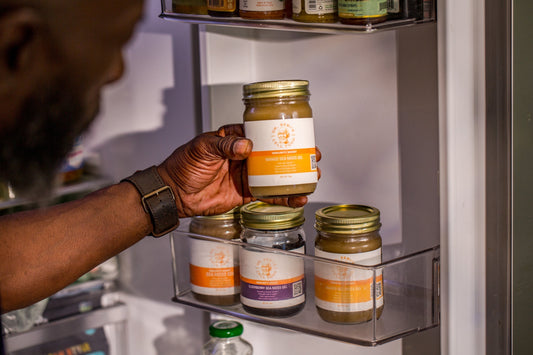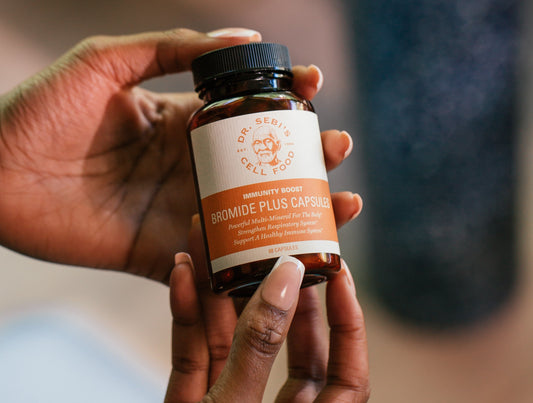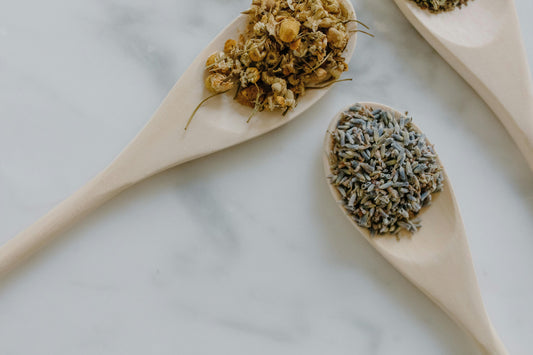Tea, beyond being a comforting beverage, has been revered for centuries for its incredible health benefits. From boosting metabolism and enhancing mental clarity to soothing digestion and promoting relaxation, different types of tea offer a wide array of advantages.
In the diverse landscape of teas, each cup brings unique health benefits to your life. Whether you're a long-time tea drinker or just discovering its magic, prepare to be amazed by the holistic well-being that steeps within each pot.
1. Benefits of Ginger Tea
Prized for its warm and spicy flavor, ginger tea is rich in bioactive compounds with anti-inflammatory and antioxidant properties. Studies, such as a January 2020 one in Nutrients, suggest that ginger may help alleviate nausea and aid digestion.
Additionally, June 2022 research in the Iranian Journal of Basic Medical Science indicates that ginger may help lower blood sugar levels and manage diabetes.
2. Benefits of Chamomile Tea
Chamomile tea, an herbal tea known for its calming effects, has been used for centuries to alleviate stress and promote relaxation. Studies, such as one in Phytomedicine in December 2016, suggest that drinking chamomile tea can improve sleep quality and reduce symptoms of insomnia.
Furthermore, chamomile's anti-inflammatory and antioxidant properties may help soothe digestive discomfort. Research from November 2007 in the Journal of Agricultural and Food Chemistry highlights chamomile's potential to reduce the risk of certain chronic diseases.
3. Benefits of Elderberry Tea
Elderberry tea is widely recognized for its powerful immune-boosting properties. Rich in antioxidants, particularly flavonoids, elderberries help protect the body from oxidative stress and support immune function.
An April 2016 study in Nutrients suggests that elderberries can reduce the severity and duration of colds and flu by enhancing the body’s natural defenses. In addition, elderberry tea has anti-inflammatory properties that help reduce swelling and soothe the respiratory system, making it an excellent choice for those seeking a natural remedy to fight seasonal illnesses.
4. Benefits of Raspberry Tea
Raspberry leaf tea is packed with essential minerals, including magnesium, potassium, and iron. Known for its ability to support women’s reproductive health, raspberry leaf tea helps tone the uterus and can ease menstrual cramps, according to ScienceDirect.
Its anti-inflammatory properties can also support digestive health by soothing the gastrointestinal tract, while its rich antioxidant content helps fight free radicals and promote healthy skin.
5. Benefits of Burdock Tea
Burdock root tea is a potent detoxifier known for its ability to purify the blood and support liver health. Rich in antioxidants like quercetin and luteolin, burdock root helps neutralize free radicals, reducing oxidative stress on the body.
A March 2017 study in Preventative Nutrition and Food Science shows that burdock’s anti-inflammatory properties can support skin health by helping to treat conditions like acne and eczema. Additionally, burdock tea is often used to boost circulation, improve digestion, and promote immune function.
6. Benefits of Fennel Tea
Fennel tea is highly regarded for its digestive benefits, helping to reduce bloating, gas, and indigestion. Fennel contains a compound called anethole, which has been shown to relax the muscles in the gastrointestinal tract, allowing for smoother digestion, per a July 2022 study in PLoS One.
This herbal tea is also a natural diuretic, promoting detoxification and reducing water retention. With its rich antioxidant profile, fennel tea supports the body’s defense against oxidative stress and inflammation, making it a beneficial choice for promoting digestive health.
7. Benefits of Linden Tea
Linden tea (tea of tila) is known for its calming properties, making it an excellent natural remedy for reducing stress and anxiety, according to WebMD. Rich in antioxidants like flavonoids and quercetin, linden tea helps protect cells from oxidative damage while also reducing inflammation.
Traditionally, linden has been used to support respiratory health, particularly in relieving cold and flu symptoms by acting as a natural expectorant. Its gentle sedative effects also promote better sleep.
Try One of Dr. Sebi’s Healing Teas
While most of the above can be found in your local health food store, Dr. Sebi’s proprietary tea blends can only be found here.


















































